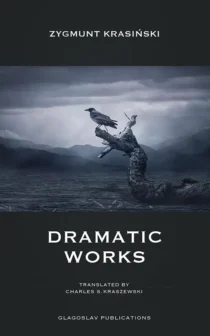Zygmunt Krasiński
Zygmunt Krasiński (1812–1859) has been traditionally considered one of the “three national bards” of Poland, along with Adam Mickiewicz and Juliusz Słowacki. His fame mainly rests on his plays, especially the monumental drama Nieboska komedia (The Undivine Comedy, 1833-1835). Irydion (1835-1836) is the second closet drama which he completed during his lifetime. Set in the early Christian ages, in Rome, it is a broad allegory of Polish national aspirations in the face of the Russian occupation of his homeland. Two other dramatic works, unfinished and posthumously published, are included in this translation: Rok 1846 (1846) and Niedokończony poemat (The Unfinished Poem), both of which were composed during the last decades of the author’s life. The Unfinished Poem is of special interest, as it provides a look at the developmental years of the character of Count Henryk, the chief protagonist of the Undivine Comedy. Krasiński also wrote verse, chief among which is Przedświt (Foredawn, 1841-1843) and Psalmy przyszłości (The Psalms of the Future, 1844-1848), and fiction, such as the early novel Agaj-Han (1832-1833). Besides his plays, however, it is his copious epistolary output which is most highly valued by critics and historians of literature.
Showing the single result
-
Dramatic Works
Price range: €9.95 through €27.80 Select options This product has multiple variants. The options may be chosen on the product page

